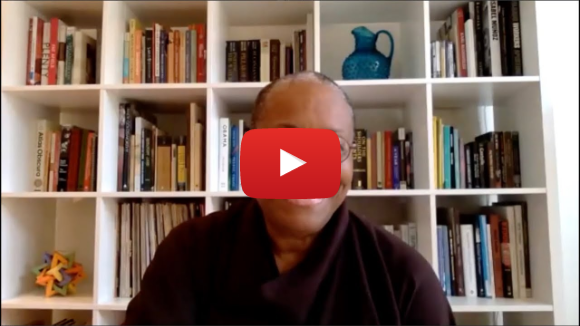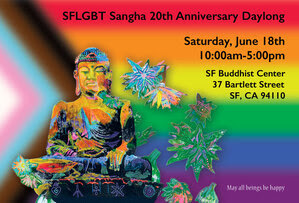ALAIN LEROY LOCKE died
on this date (b: 1885); Locke was an American, writer, educator, and
patron of the arts, distinguished as the first African-American Rhodes
Scholar in 1907. Locke is widely cited as the philosophical architect
—the acknowledged "Dean"— of the Harlem Renaissance. On March 19, 1968,
the Rev. Dr. Martin Luther King, Jr. proclaimed: "We're going to let our
children know that the only philosophers that lived were not Plato and
Aristotle, but W.E.B. DuBois and Alain Locke came through the universe."
Alain Locke was born in Philadelphia, Pennsylvania, on September 13, 1885 to
Pliny Ishmael Locke and Mary Hawkins Locke. He was the only child of a
well-to-do family with significant pedigree. His mother Mary, who was a
teacher, and with whom he lived until her death, incited in him his
passion for education and literature. In 1902, he graduated from Central
High School in Philadelphia, second in his class. He also attended
Philadelphia School of Pedagogy.
Locke returned to Harvard in 1916 to work on his doctoral dissertation, The Problem of Classification in the Theory of Value.
In his thesis, he discusses the causes of opinions and social biases,
and that these are not objectively true or false, and therefore not
universal. Locke received his PhD in philosophy in 1918.
Locke returned to
Howard University as the chair of the department of philosophy. During
this period, he began teaching the first classes on race relations,
leading to his dismissal in 1925. After
being reinstated in 1928, Locke remained at Howard until his retirement
in 1953. Locke Hall, on the Howard campus, is named after him.
In 1907, Locke
graduated from Harvard University with degrees in English and
philosophy, and was honored as a member of the Phi Beta Kappa
Society and recipient of the prestigious Bowdoin Prize. After
graduation, he was the first African-American selected as a Rhodes
Scholar (and the last to be selected until 1960). At that time, Rhodes
selectors did not meet candidates in person, but there is evidence that
at least some selectors knew he was African-American.
On arriving at
Oxford, Locke was denied admission to several colleges, and several
Rhodes Scholars from the American South refused to live in the same
college or attend events with Locke. He
was finally admitted to Hertford College, where he studied literature,
philosophy, Greek, and Latin, from 1907–1910. In 1910, he attended the
University of Berlin, where he studied philosophy.
Locke promoted
African-American artists, writers, and musicians, encouraging them to
look to Africa as an inspiration for their works. He encouraged them to
depict African and African-American subjects, and to draw on their
history for subject material.
He was the guest editor of the March 1925 issue of the periodical Survey Graphic titled "Harlem, Mecca of the New Negro", a special on Harlem and the Harlem Renaissance, which helped educate white readers about its flourishing culture. In December of that year, he expanded the issue into The New Negro,
a collection of writings by African Americans, which would become one
of his best known works. A landmark in black literature (later acclaimed
as the "first national book" of African America), it was an instant
success. Locke contributed five essays: the "Foreword", "The New Negro",
"Negro Youth Speaks", "The Negro Spirituals", and "The Legacy of
Ancestral Arts".
Locke was Gay, and encouraged and supported other Gay African-Americans who were part of the Harlem Renaissance. However, he was not fully public in his orientation and referred to it as his point of "vulnerable/invulnerability", taken to mean an area of risk and strength in his view.
Locke died at
Mount Sinai Hospital, of heart disease. Howard University officials
initially considered having Locke's ashes buried in a niche at Locke
Hall on the Howard campus, similar to the way that Langston Hughes'
ashes were interred at the Schomburg Center for Research in Black
Culture in New York City in 1991. But Kurt Schmoke, the university's
legal counsel, was concerned about setting a precedent that might lead
to other burials at the university. After an investigation revealed no
legal problems to the plan, university officials decided the remains
should be buried off-site. At first, thought was given to burying Locke
beside his mother, Mary Hawkins Locke. But Howard officials quickly
discovered a problem: She had been interred at Columbian Harmony
Cemetery in Washington, D.C., but that cemetery closed in 1959 and her
remains transferred to National Harmony Memorial Park—which failed to
keep track of them. (She was buried in a mass grave along with 37,000
other unclaimed remains from Columbian Harmony.)
Howard University
eventually decided to bury Alain Locke's remains at historic
Congressional Cemetery, and African American Rhodes Scholars raised
$8,000 to purchase a burial plot there. Locke was interred at
Congressional Cemetery on September 13, 2014. His tombstone reads:
1885–1954 - Harlem Renaissance - Exponent of Cultural Pluralism
On the back of
the headstone is a nine-pointed Baha'i star (representing Locke's
religious beliefs); a Zimbabwe Bird, emblem of the nation Locke adopted
as a Rhodes Scholar; a lambda, symbol of the Gay Rights movement; and
the logo of Phi Beta Sigma, the fraternity Locke joined. In the center
of these four symbols is an Art Deco representation of an African
woman's face set against the rays of the sun. This image is a simplified
version of the bookplate that Harlem Renaissance painter Aaron
Douglas designed for Locke. Below the bookplate image are the words
"Teneo te, Africa" ("I hold you, my Africa")
A new biography of Locke by Jeffrey Stewart "The New Negro: The Life of Alain Locke," was released in February 2018.
|8|O|8|O|8|O|8|O|8|O|8|O|8|O|8|
Gay Wisdom for Daily Living from White Crane Institute
"With the
increasing commodification of gay news, views, and culture by powerful
corporate interests, having a strong independent voice in our community
is all the more important. White Crane is one of the last brave
standouts in this bland new world... a triumph over the looming
mediocrity of the mainstream Gay world." - Mark Thompson
Exploring Gay Wisdom & Culture since 1989!
www.whitecraneinstitute.org
|8|O|8|O|8|O|8|O|8|O|8|O|8|O|8|









